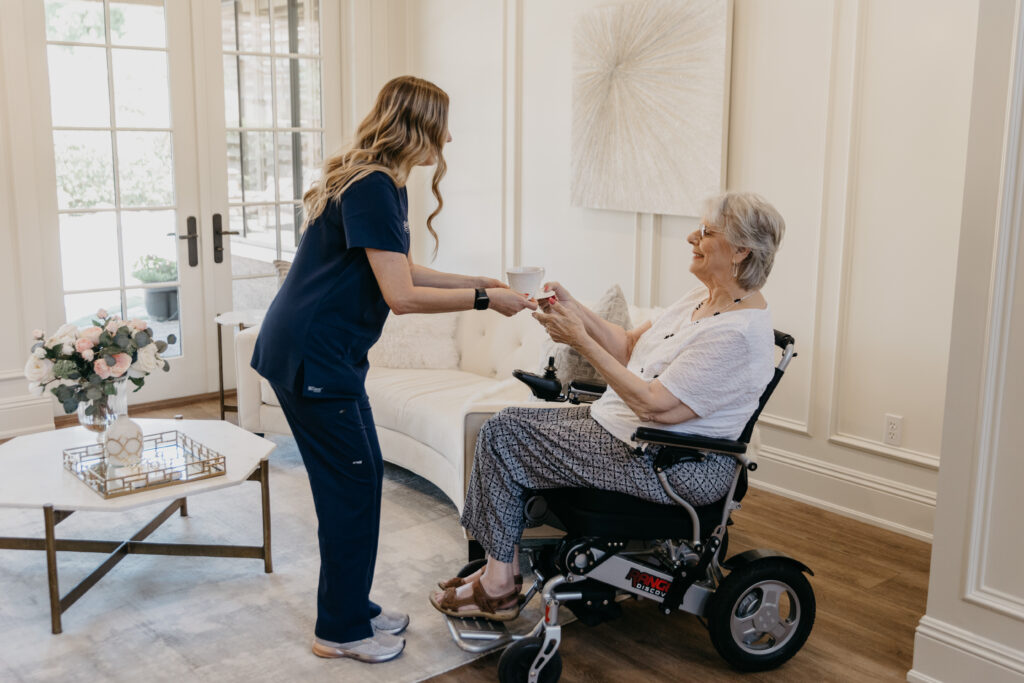As you notice your parents aging, you can feel yourself begin to shift from a carefree child to a concerned caregiver. It’s easy to become worried about your loved one as they age; there’s a lot of emotions there. However, it can be easier to cope when you know what to be worried about and what you can chalk up to normal aging. While both might require a physician’s visit, you can at least know what symptoms could point to a health crisis and what signs are considered “normal”.
Memory Loss
Have you ever misplaced your keys or gotten to the grocery store and couldn’t remember what item you thought of on the way over to add to your shopping list? It can feel concerning when our memory lapses, and even more so if we see those incidents happen to our aging parents.
Some memory loss is a normal part of aging. Misplacing your keys or wandering the aisles of the grocery store for a bit before you finally remember the final item on your list is common. Even forgetting a word here and there in conversation is common. The concern comes when memory loss begins to affect daily life.
The Alzheimer’s Association notes that memory loss that affects daily life can be an indicator of dementia and is not considered normal aging. If your loved one forgets how to get to the grocery store, can no longer manage their bills, or chooses to skip meeting friends for lunch because they forget the destination, these are signs of abnormal aging.
Balance and Strength

The Centers for Disease Control reports that nearly 1 in 4 seniors will fall this year. Falls happen for a variety of reasons ranging from declining vision to decreased balance to improper footwear. If your loved one has fallen in the past few months, it is important to determine the reason and how you can work with them to solve it.
When it comes to “normal” aging, our balance tends to decrease as we get older, as does our general muscle mass and strength. Both of these factors can contribute to a fall. Low vision can also be a “normal” aging challenge that can contribute to a higher risk of falling. However, if your loved one is walking with a shuffle or unbalanced gait, or has trouble navigating around their home without holding onto a wall or countertop, it is no longer normal.
Hearing Challenges
As we grow older, it is common to experience a decrease in overall hearing. The Hearing Health Foundation reports that presbycusis, or age-related hearing loss, is one of the most common conditions that affect seniors. So, if you notice that you have to repeat yourself a few times while on the phone with your loved one, you can chalk it up to the normal aging process.
However, if you are finding that your loved one is not participating in the conversations around them due to the fact they cannot hear or keep up, it is time to talk to a physician. Hearing challenges can sometimes mask other symptoms, including those of cognitive decline.
No matter if your loved one is experiencing challenges due to normal aging or a more complex medical condition, the right support can go a long way in helping them maintain their health and independence at home. For many seniors, home care services are a game-changer, allowing them to have consistent support, assistance, and companionship from qualified caregivers.
The team at Total Care Connections is dedicated to serving our clients with dignity and respect as we help them meet their wellness goals. Contact us today to schedule a free assessment so that we can get to know your situation and provide our recommendations.
